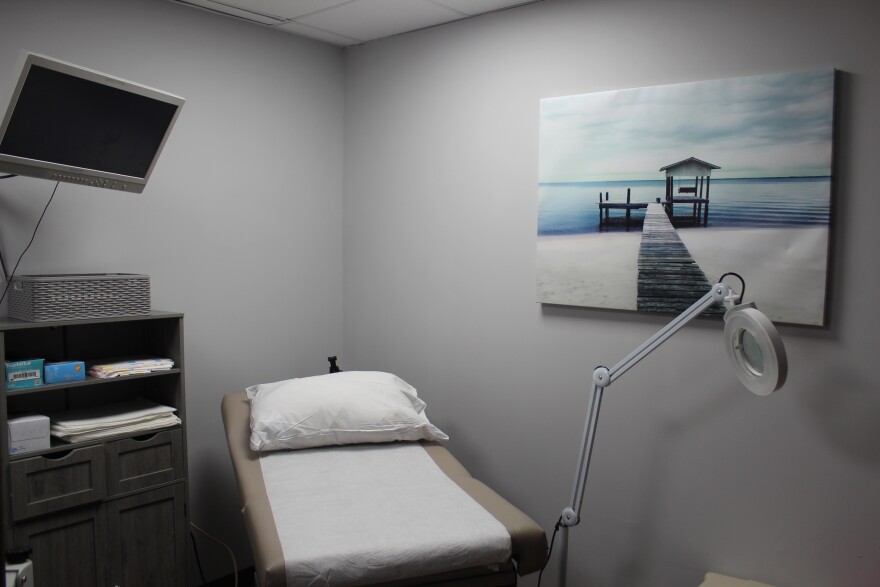For many survivors of domestic violence, the first step toward help is a call to the National Domestic Violence Hotline, or a visit to a local shelter or justice center.
In Colorado, more people are reaching out.
A new report from Attorney General Phil Weiser’s office makes the trend painfully clear: domestic violence is rising sharply across the state. Last year, deaths rose 24%, even as overall homicides fell.
38 victims were killed by an abusive partner. Eight children were killed, five of them during custody disputes, which is the highest number ever recorded in Colorado. 26 perpetrators also died, either by suicide or killed by police.
In all, domestic violence made up roughly a quarter of all state homicides.
Shelters at a breaking point
Shelters for domestic violence survivors say the data matches what they’re experiencing on the ground.
Diane Heldt, executive director of A Woman’s Place in Greeley, said demand is outpacing capacity.
“We've had a 29% increase in the number of crisis calls that we've gotten in the past year,” Heldt said.
In Fort Collins, Crossroads Safehouse executive director Lori Warren says the violence itself is also getting more extreme, with more cases involving strangulation and weapons.
“Pre-COVID, we saw... I don't know, 20 of those cases a year at Crossroads,” Warren said. “To this day, post-COVID, we're seeing 20-plus a month.”
Candace Cooledge, founder and executive director of the expansive Porchlight Family Justice Center in Lakewood – a one-stop center that brings multiple survivor services under one roof – is seeing the same trend.
“We've been seeing that for at least this year. Everything is even more severe,” Cooledge said. “The incidents are really, really awful, more complex, including the needs of the guests.”

The statewide picture is similar, according to Soledad Diaz, interim executive director of the domestic violence coalition Violence Free Colorado. She says the barriers to finding help are even higher for people who don’t speak English.
“If there's one population right now that we know for sure that are not looking for services, is our immigrant population,” Diaz said. “We need to live with that, and we need to navigate that gracefully.”
The system isn't built for survivors
Once a survivor enters the legal system, the challenges compound.
Fort Collins attorney Haley Dunn handles civil domestic violence cases, like protection orders, custody disputes, and helping survivors navigate where the criminal system falls short. She stresses that danger is almost always visible long before a major injury, but courts often miss it.
“The system doesn't fully understand the dynamics of domestic violence,” Dunn said. “Unless it gets to the point where there's serious bodily injury or a homicide, it's kind of not seen as that harsh of a situation.”
Dunn notes how survivors often juggle criminal, civil, and family courts at once, all with different rules, burdens of proof, and judges. She says many survivors ultimately drop charges not because the abuse didn’t happen, but because of financial pressure, retaliation fears, or childcare.
When children are involved, the stakes rise. Colorado courts start with an expectation of 50–50 parenting time, and survivors must argue against it. Dunn says abusers often use that to keep control.
“How can they continue to control their ex-partner? It's through the children. What's the easiest way to hurt someone? It's to hurt their children,” Dunn said. “They can't see that hurting their children is really also them hurting themselves.”
Dunn says Colorado law enforcement needs better support, too, such as more training on the complexities of domestic violence.
Chronic funding gaps
Democratic House Majority Leader Monica Duran, herself a survivor, has sponsored several domestic violence bills in recent years, including firearm relinquishment, improving strangulation investigations, and setting new court standards for domestic violence cases.

Duran says more work is still needed. Next legislative session in January, she’s pushing for an assessment protocol to help law enforcement identify danger immediately.
“We always talk about prevention. We're always there for when the act has happened, but what can we do ahead of time?” Duran said. “We can provide law enforcement with the structure, a tool to be able to assess the situation in order to prevent collateral damage.”
But Duran says even the strongest policies won’t fully work without steady funding.
Shelters, justice centers, and community programs still rely heavily on federal dollars that have largely dried up due to budget cuts, leaving gaps that the state hasn’t filled.
Until then, the people helping survivors of domestic violence every day say they'll do as much as they can, with the resources they have.
Anyone experiencing domestic violence or in crisis should call the National Domestic Violence Hotline at 1-(800)-799-7233, or visit thehotline.org.




